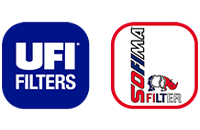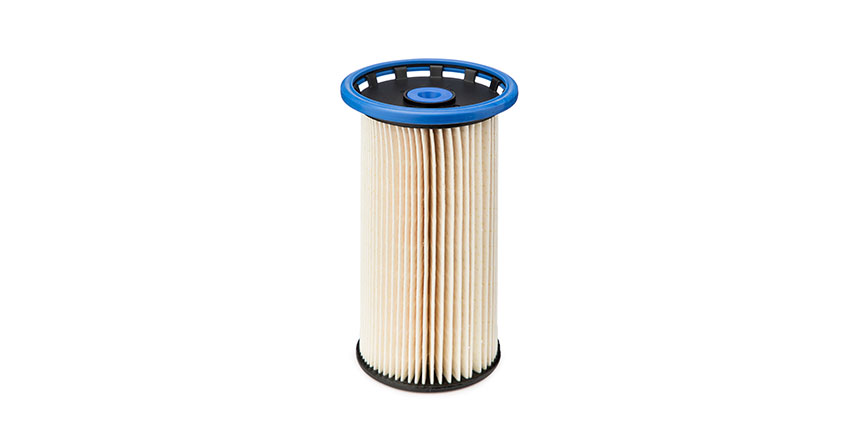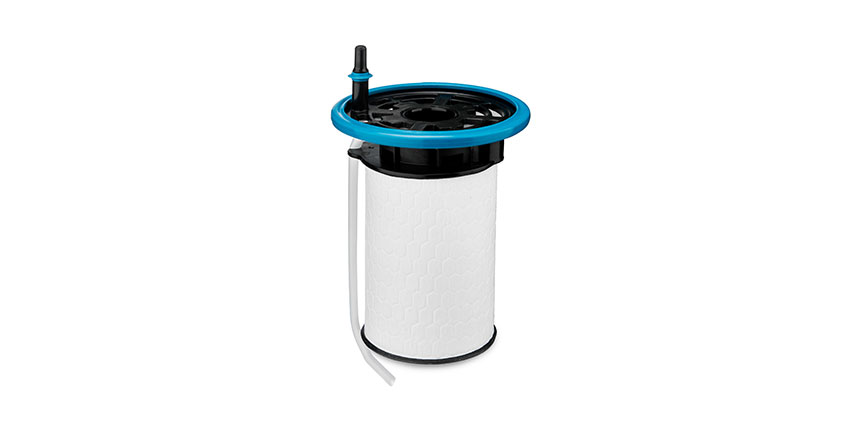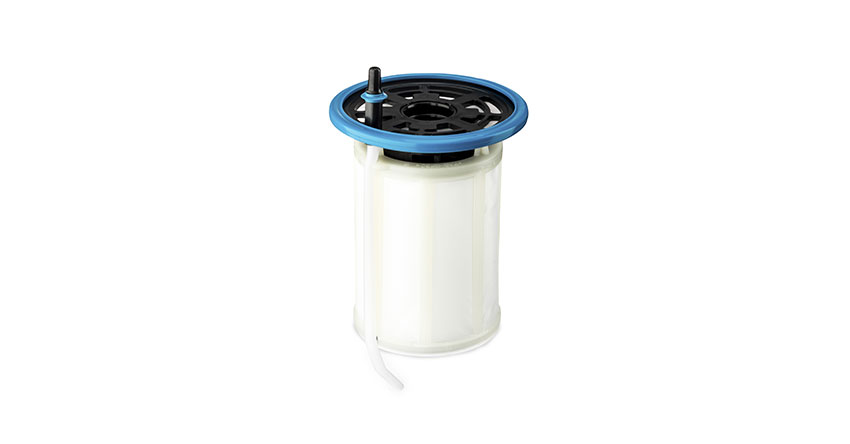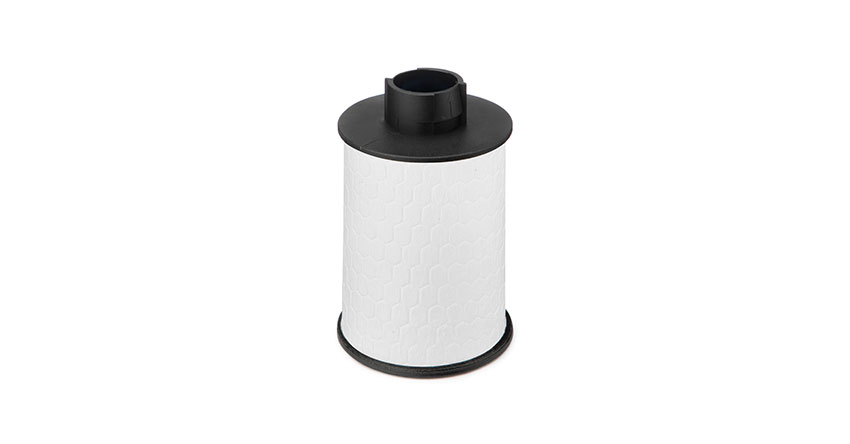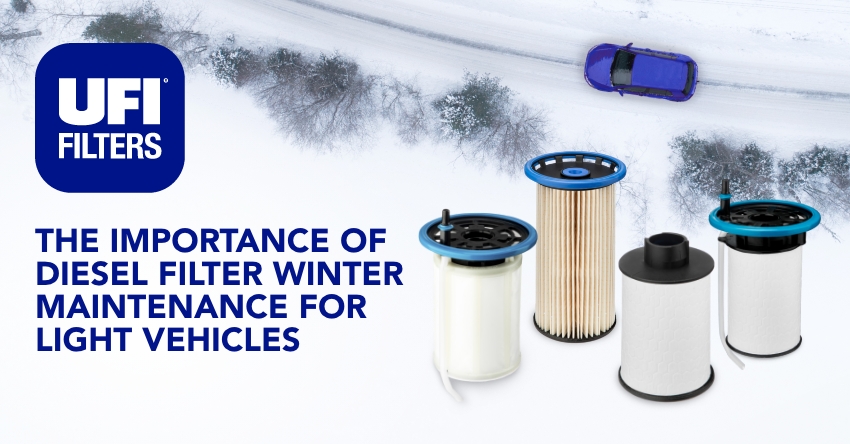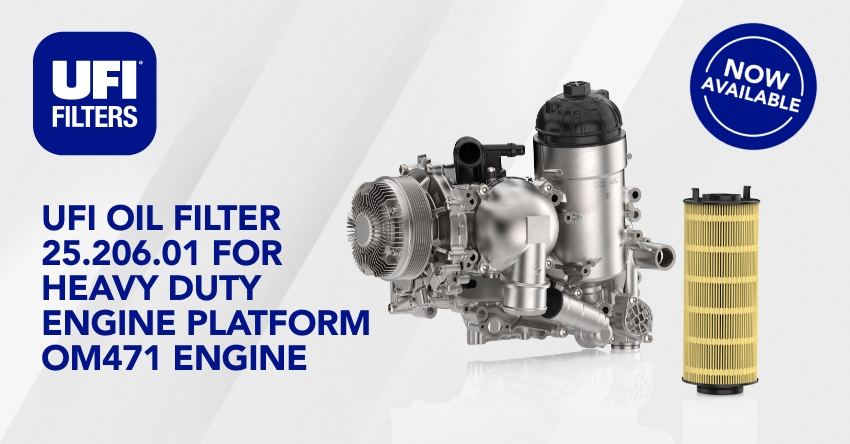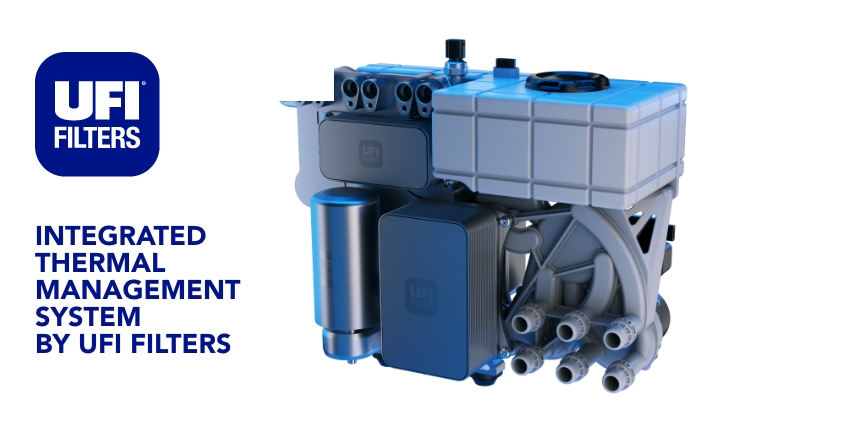The fuel filter is a key element for protecting an engine and ensuring good performance. It represents a barrier against impurities and water residue which could irreparably damage the injectors, leading to high repair costs. Regularly changing the diesel fuel filter is an essential task to ensure the correct operation of the vehicle’s engine, most of all during winter.
There are four main reasons for changing the diesel filter in winter:
- Protection against extreme cold: in some climate zones, temperatures can reach very low values and, compared to other fuel types, diesel fuel is more susceptible to the formation of crystalline wax particles which could cause early clogging of the filter. Regularly changing it guarantees that the fuel flows smoothly even at very low temperatures.
- Improved engine efficiency: a clean diesel filter allows the engine to operate more efficiently. When the filter is clogged, the engine has to work harder to keep the fuel flow regular, reducing functionality and increasing fuel consumption.
- Reduced costs: regular maintenance of the diesel filter can help prevent the need for costly engine repairs. A dirty or clogged diesel filter can lead to long-term damage.
- Longer engine life: keeping the diesel filter in optimum condition helps prolong the service life of the engine. A dirty or malfunctioning filter can indeed lead to internal engine damage.
What are the symptoms of a clogged diesel filter?
- Decreased vehicle performance and efficiency, such as loss of power or difficulty accelerating.
- Difficulty starting can be a sign of a clogged diesel filter, since the engine struggles to receive the necessary fuel. The engine may also stall at idle.
- Engine warning light: if the fuel is not reaching the engine correctly, the warning light (check engine/MIL) could light up on the instrument cluster, causing the vehicle to enter limp mode or come to a stop.
- Increased fuel consumption: with a clogged diesel filter, the engine requires more fuel to run correctly.
When is it important to change the fuel filter?
The frequency with which the diesel filter should be changed may vary depending on the vehicle and driving conditions. Normally, maintenance of the diesel fuel filter for a car or light commercial vehicle should be carried out every 15,000-30,000 km (10-20,000 miles), or at least once a year. In any case, it is recommended to follow the vehicle manufacturer’s guidelines.
High-efficiency water separation filters.
Choosing a diesel filter with high water separation capacity, such as those from the UFI Filters range, is of key importance, particularly in winter. Residual water in the fuel can freeze, causing damage to the engine injection system. UFI Filters’ high-quality filters are manufactured with specific materials:
- Extreme with polymer fibres, such as the 60.H2O.00 or 26.052.00 filter for Stellantis applications.
- H2O with cellulose fibre coupled to synthetic or glass fibres, such as the 26.038.00 filter for the Volkswagen Group’s most popular engine, the EA 288 EVO 1.6 and 2.0 litre models.
- In order to further improve the performance of FormulaUFI.Extreme, the materials are often combined in different layers with hydrophobic barriers – Stratiflex, such as the 26.H2O range of filters.
The UFI Filters Group was a pioneer in developing high water separation capacity filters using DFM – deep filtration media – which separates the smallest water particles, down to 4 microns, from the diesel fuel, thanks to deep filtration according to the principle of coalescence. These materials are designed to effectively separate water from diesel fuel, guaranteeing that the engine operates without clogging, even at low temperatures, but above all are compatible with the latest biodiesels. It is very important for the filters to be designed to guarantee the greatest filtration performance even when using biofuels. Indeed, in biodiesel of vegetable origin, the higher percentage of water and bacteria can encourage the formation of residue and gelatinous sludges which can lead to clogging.
Although the presence of water in diesel fuel is regulated by European standard EN 590 and must not exceed the maximum value of 200 ppm (parts per million), sometimes the amount and size of water particles to be separated from the diesel fuel can be greater. Relying on a manufacturer like UFI with a strong OE pedigree guarantees that the product has been developed in order to maintain the highest standards of water separation, even in harsher conditions than those described in the regulations.
Technological developments have also led to different functions being incorporated into the filter. The modules supplied by UFI Filters as original equipment can be equipped with electronic sensors to monitor the temperature and signal the presence of water, and electric heaters to help with cold starting.
What happens if low quality filters are chosen?
In the aftermarket sector, there is the risk of ending up with substandard or even counterfeit filters, with unsuitable filter media that do not perform the function of separating the water from the diesel, or which do so inappropriately. UFI Filters’ filtration systems, thanks to the company’s OE know-how, use the most advanced materials; these are resistant to bad fuel and biodiesel, and are manufactured using the very best raw materials and technologies. Buying a poor quality product to save money can seriously compromise the fuel injection system, leading to the risk of increased vehicle downtime and related financial losses, especially for those who use their vehicle for work.
In conclusion, diesel fuel filter maintenance is of fundamental importance, most of all during winter. Regular changes help protect the engine, improve vehicle efficiency, and prevent costly repairs. Moreover, choosing high-efficiency water separation filters is a wise choice to help ensure that the engine works optimally under all conditions. Paying attention to clogged diesel filter signs and following the manufacturer’s maintenance recommendations will help keep your vehicle in optimum condition over the winter and beyond.
